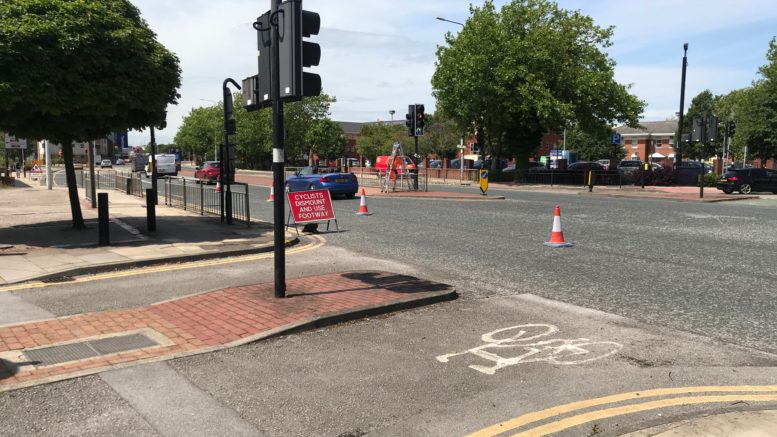Pop-up cycle lanes are becoming a key feature of Hull’s transport infrastructure as more people opt to use this greener form of travel.
As a result of lockdown, cycling has increased by 29 per cent in the Yorkshire and Humber region.
And to support this shift towards a more active Hull, Hull City Council wants to reassure residents that extensive safety measures are being implemented to help make cyclists feel safer.
According to Cycling UK , NHS data has revealed that people are 23 times more likely to be admitted to hospital for a slip, trip or fall, than riding a bike.
Councillor Daren Hale, portfolio holder for economic investment, regeneration and planning, said: “We understand that cycling on city roads can be a daunting prospect, and this is why we’re taking measures to ensure the safety of cyclists.
“Measures including segregated cycle lanes with barriers, all day bus lane enforcement and free training courses for those who have never cycled before, or for those that need a little refresher.”
The free Rusty Riders scheme trains adults who wish to learn how to cycle safely and efficiently, particularly to and from work, making the most of the city’s expanding cycling network.
First taste of the new pop-up segregated cycle lane on Hull’s Freetown Way. It felt like quite a luxury having so much space. Work is to begin soon to permanently segregate a portion of the road. Followed by other arterial routes. pic.twitter.com/OfJs4MQIvJ
— David Harrison (@DaveHarrisonBBC) June 29, 2020
Just last year, the council joined forces with Humberside Police to launch Operation Safe Pass, a scheme targeting motorists who pass too close to cyclists.
Cyclists are also advised to wear light or reflective clothing, cycle an arm’s length away from the kerb, and if possible use cameras to submit footage to the police of dangerous driving.
Local cyclist Andrea is already a fan of the pop-up cycle lane in Freetown Way.
She said: “I’m writing just to express my thanks for Hull City Council’s efforts to make Hull a safer cycling city. I say brave because it’s obviously a bold and difficult thing to do.
“I cycled for the first time on Freetown Way the other day and was surprised how much of a difference segregated cycling makes.
“You get used to a certain feeling cycling on a normal road in heavy traffic—constant, low-grade dread that you might, at any point in the journey, be injured or killed. I have been close to being involved in potentially fatal incidents too many times to count and all I was doing was just travelling to work and obeying the law.
“To know I am close to 100 per cent safe on the road — it’s like night and day, so again, thank you for being forward-thinking and trying to do something. It is genuinely appreciated.”
To find out more about Hull’s ambition to become a cycling city, visit the Hull City Council website.




